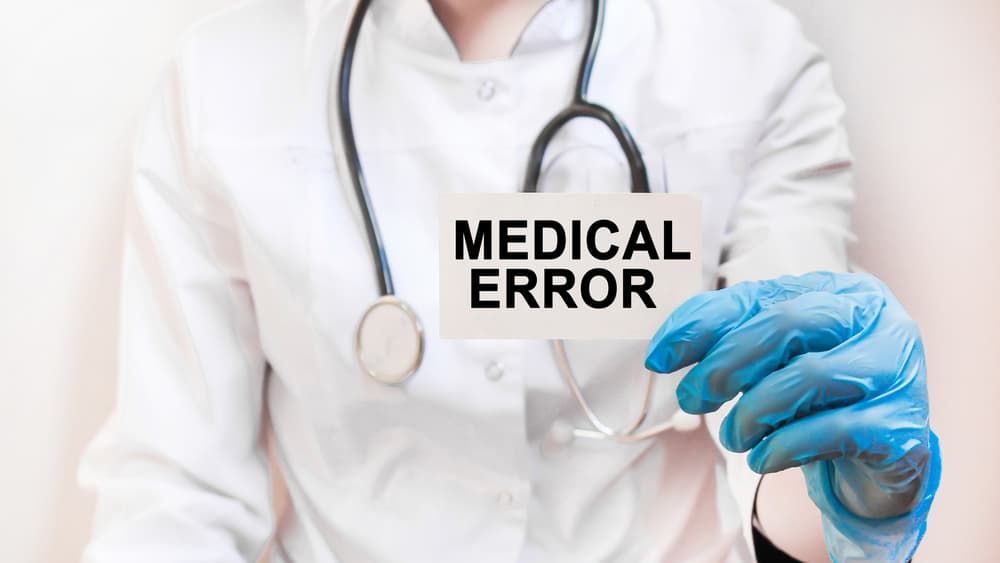When you or a loved one has suffered due to a doctor's negligence in Georgia, you feel more than just physical pain. You also feel a betrayal of trust along with emotional trauma and an unexpected financial burden. You likely have options for recovering compensation for your injuries and losses, but you need to know how to sue a doctor for malpractice to get the money you need.
Read on to learn more about suing a medical provider for medical malpractice and the importance of having legal representation. For specific advice regarding your situation, contact a medical malpractice lawyer near you for a free consultation.
Defining Medical Malpractice
Georgia law defines medical malpractice as a healthcare provider's failure to meet the accepted standard of care in their field, resulting in a patient suffering harm or dying. This standard of care is what a reasonably skilled and competent healthcare professional, with similar training and experience, would have provided under similar circumstances.
Not all negative medical outcomes constitute malpractice, though. Sometimes, despite a doctor's best efforts, treatments don't work as expected. The key is whether the healthcare provider's actions (or lack thereof) fell below the accepted standard of care.
Determining if You Have a Medical Malpractice Case
To have a valid medical malpractice case in Georgia, you generally need an attorney to prove four key elements:
- The healthcare provider had a professional duty to care for you.
- The provider failed to meet the standard of care.
- This failure directly caused your injury or harm.
- You suffered actual damages (physical, emotional, financial) as a result.
Common Types of Medical Malpractice
Medical malpractice can take many forms. Some common types include:

- Misdiagnosis or delayed diagnosis
- Surgical errors
- Medication mistakes
- Birth injuries
- Anesthesia errors
- Failure to treat
- Lack of informed consent
If you've experienced any of these, you need to explore your legal options.
Building a Med Mal Case
Building a strong medical malpractice case requires solid evidence. Here's what you'll need to collect:
Medical Records
Your medical records are the foundation of your case. They provide a detailed account of your treatment, including doctors' notes, test results, and prescribed medications. You have a right to these records, and your attorney can help you obtain them.
Expert Opinions
Medical malpractice cases often hinge on expert testimony. Your attorney will work with other healthcare professionals and medical experts who can explain how your treatment deviated from the standard of care.
Witness Statements
Statements from family members, friends, or coworkers who witnessed your suffering can strengthen your case. These accounts can help illustrate the extent of your damages and the effect your injuries have had on your life.
Statute of Limitations
In Georgia, there are strict time limits for filing a medical malpractice lawsuit. You must understand these time limits to preserve your right to seek compensation.
Time Limits for Filing a Medical Malpractice Lawsuit
Every state has a legal deadline for filing a personal injury lawsuit in court, seeking damages. In Georgia, for instance, you generally have two years from the date of injury or death to file a medical malpractice lawsuit. However, there's also a five-year statute of repose, which means that, regardless of when the injury was discovered, you can't file a lawsuit more than five years after the negligent act occurred.
Exceptions to the Statute of Limitations
There are some exceptions to these rules. For instance, if a foreign object was left in your body during surgery, you have one year from the discovery of the object to file a claim. Additionally, for minors, the statute of limitations may be extended.
Given these complex timelines, you must consult a medical malpractice attorney as soon as you suspect malpractice. They can ensure you don't miss critical deadlines.
Finding a Medical Malpractice Attorney
Medical malpractice law is complex and requires specific knowledge and experience. Look for an attorney who regularly handles these types of cases. They'll be familiar with the nuances of medical malpractice law and have established relationships with medical experts.
How to Research and Choose an Attorney
Start by looking for attorneys with a track record of success in medical malpractice cases. Read reviews, check their website for information about their experience, and don't hesitate to ask for references. Many attorneys offer free initial consultations, which can be a great opportunity to assess their knowledge and determine if they're a good fit for you.
Medical Malpractice Litigation Process
The process of suing a doctor for malpractice follows a series of steps:
Obtain and Review Medical Records
A medical expert will review your case, including your medical records and synopsis of the events. The expert will make a determination on whether there was a deviation from the “Standard of Care” which led to the injuries. If the expert believes you have a potential lawsuit they will draft an affidavit and provide it to your attorney.
Filing the Lawsuit
Your attorney will file a complaint with the court, officially starting your lawsuit. This document outlines your allegations against the healthcare provider based on the affidavit from the medical expert.
Discovery
During discovery, both sides exchange information about the case. This may include depositions (sworn out-of-court testimony), requests for documents, and written questions called interrogatories.
Negotiation and Settlement
Many medical malpractice cases settle out of court. Your attorney will negotiate with the defendant's insurance company to try to reach a fair settlement.
Going to Trial
If the insurance company doesn’t offer a fair settlement, your case will proceed to trial. Both sides will present evidence and arguments, and a judge or jury will decide the outcome.
Potential Outcomes
If your attorney wins your case, the court may award you damages to compensate for medical expenses, lost wages, pain and suffering, and more. If the court’s ruling isn’t in your favor, your attorney can discuss the option of appealing the decision.
Contact a Med Mal Attorney for Help

If you believe you or a family member suffered due to medical negligence in Winder or anywhere in the surrounding areas of Georgia, you don’t have to face the challenging process of trying to get compensation on your own.
The skilled medical malpractice lawyers at Lewis Law can review your case at no cost and advise you of your rights and options. Since 2011, we’ve helped numerous clients in the Winder area obtain full compensation and justice for their injuries and losses. We also devote a large part of our practice to medical malpractice cases, so we have the knowledge and resources to handle your claim effectively.
At Lewis Law, we offer experience, commitment, and results. Don’t wait to get the legal help you need and contact us today for a free consultation. With our help, you can hold the negligent medical provider accountable and get the justice and compensation you and your family deserve.